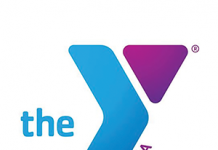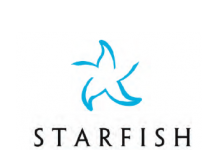 Wayne State University has always been a cornerstone of Detroit’s giving spirit, and since appointing Dr. M. Roy Wilson as president in 2013, the university has revved up its efforts to rehabilitate the urban community that surrounds it. Wilson brings years of experience in both university and health care administration. He previously served as the deputy director of strategic scientific planning and program coordination at the National Institute on Minority Health and Health Disparities, and as dean of the School of Medicine at Creighton University; he also holds an M.S. in epidemiology from UCLA and an M.D. from Harvard Medical School. In 2016, President Wilson introduced Wayne Med-Direct, a program that guarantees tuition-free, direct admission to Wayne State School of Medicine to 10 talented high school students from socio-economically disadvantaged backgrounds across the city. This October, Wayne State will turn 150, and to celebrate, Wilson launched the Warrior 150 Challenge in January, challenging the university community to complete 150,000 community service hours by the end of 2018. Here, President Wilson shares why taking on projects like this are crucial for revitalizing Detroit.
Wayne State University has always been a cornerstone of Detroit’s giving spirit, and since appointing Dr. M. Roy Wilson as president in 2013, the university has revved up its efforts to rehabilitate the urban community that surrounds it. Wilson brings years of experience in both university and health care administration. He previously served as the deputy director of strategic scientific planning and program coordination at the National Institute on Minority Health and Health Disparities, and as dean of the School of Medicine at Creighton University; he also holds an M.S. in epidemiology from UCLA and an M.D. from Harvard Medical School. In 2016, President Wilson introduced Wayne Med-Direct, a program that guarantees tuition-free, direct admission to Wayne State School of Medicine to 10 talented high school students from socio-economically disadvantaged backgrounds across the city. This October, Wayne State will turn 150, and to celebrate, Wilson launched the Warrior 150 Challenge in January, challenging the university community to complete 150,000 community service hours by the end of 2018. Here, President Wilson shares why taking on projects like this are crucial for revitalizing Detroit.
GIVE: What inspired you to start the Warrior 150 challenge at Wayne State?
Roy Wilson: Well, this is our sesquicentennial year and we’re having a celebration in October to celebrate our 150th birthday. I thought we should do something special to commemorate that. It shows our commitment to the community of Detroit, which has been so supportive of us for the past 150 years. We do a lot of community service anyway, but I thought, “Ok, let’s really take it up a notch and see if, as a university, we can get in 150,000 volunteer hours.” We don’t know how many hours we have now, but in the next week or so, we’re going to start calculating to see where we are. After that, we’re going to start a countdown up to the week of the sesquicentennial celebration.
Wayne State is already so heavily involved in the community. Have you branched out into other areas of service to complete the challenge?
There are a couple of things that are a little bit more special than usual. For example, we sponsored the American Heart Association Walk, which was a huge event. Probably the worst day, weather wise, that we’ve had this year — there was rain, and thunder, and lightning, but still we had a couple of thousand people come out. We probably would’ve had 15,000 people had it not been for the weather. There’s still a lot of work going on with that. We have students who are going around the community and teaching people how to do CPR as part of their ongoing efforts. We had the bike ride Baroudeur in August, [described as a “fun noncompetitive cycling event” through the Motor City and surrounding area] that’s kind of special. And one of the university events that I participated in was painting a community center in Detroit.
Detroit has a lot of needs, a lot of urban cores, and we try to focus on all of those.
— Dr. M. Roy Wilson, President of Wayne State University
Who’s allowed to contribute to the 150,000 hours? Does personal volunteer time count?
Yes. It’s the entire university community. So, it’s students, it’s faculty, it’s staff, it’s everyone. If they volunteer somewhere and it contributes to the welfare of Detroit at large — even if it’s not a university-sponsored event — we’ll count it.
What do you think are some of the most important areas to focus on in terms of service in Detroit?
Detroit still has a lot of needs. There are issues with the homeless population, there are issues with health disparities, and [there’s a need for] making sure that people are getting adequate health care. We have a great hospital system, but I’m talking about health care that is accessible to everyone in their own communities. That’s so important. I think there are issues with adequate food supply for some. Detroit has a lot of needs, a lot of urban cores, and we try to focus on all of those. I’m in both health and education, however, so areas that touch upon one of those two are certainly special to me.
Any initiatives you have planned with regards to health or education?
Yes, we’re launching a very big initiative on the health side called, “One Big Idea,” where we’re investing a million dollars just in the planning phase. Ultimately, it’s going to be something that’s related to cardiovascular health, trying to get area hospitals and other health providers organized in a way to better tackle cardiovascular disease in Detroit. There will be a strong research component to it, but there will also be clinical components. We’re planning through town halls right now, and soon after, we’ll convene with different provider groups to start making changes.
|
|
|









